7 Ways Kids Can Develop Self-Awareness Skills (That Also Help With Kindness & Empathy!)
We were having a heck of a time with one of our kids until he started to develop self-awareness skills. Having a differently wired brain, he is developmentally delayed in empathy and understanding other people especially compared to other kids his age. He would get extremely explosive. As you can imagine, it started to take a toll on him and our whole family. We did everything we could to help him manage his big feelings.
Recently, I decided to teach him about his brain.
I’m not really sure what took me so long because learning facts is his jam. Earlier in the year, we read a Science Comics Book about the brain that we both loved, but I never thought of using that information to help him become aware of his emotions and actions.
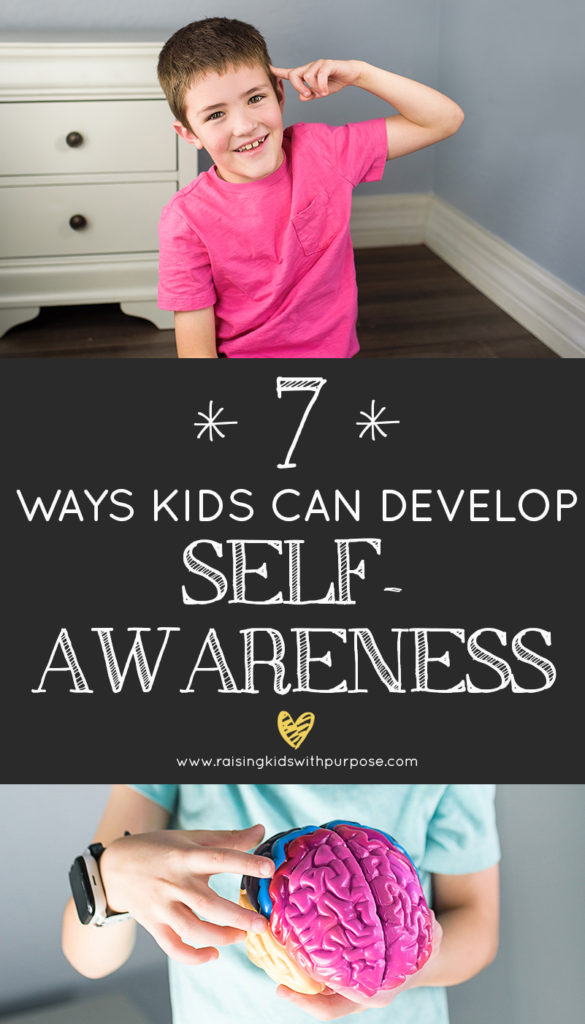
This post contains affiliate links, see disclosure policy for details.
The day after he learned the hand model of the brain, he became aware of his big emotions and stopped all of his anger right in its tracks. Ever since he has been able to self-regulate much quicker.
Pssst: Does your child struggle with big emotions? Download this free Calm Down Toolkit when you sign up for my newsletter.
Table of Contents
What is Self-Awareness?
Simply put, it’s becoming aware of one’s self.
For children, it’s important that we teach self-awareness skills such as knowing how their strengths, weaknesses, and personality affect their choices and the way they treat the people in their lives. When the child is receptive, it’s much easier for empathy to develop as he or she can better understand others. This then typically trickles down to being more kind.
Benefits of Self-Awareness for Kids
When kids are self-aware, they are able to understand themselves in relation to the world around them. Besides learning who they are as a person, self-awareness helps them dig a little deeper to decode how their emotions impact what they do.
Here are many benefits of self-awareness:
- Higher levels of emotional intelligence
- The ability to empathize, be more compassionate and kind
- Better communication and listening skills
- Critical thinking skills
- The ability to make better decisions
- Stronger relationships
- Better leadership skills
7 Ways Kids Learn Self-Awareness Skills
There are many ways to teach self-awareness, however, these are what I found to be the most effective ways.
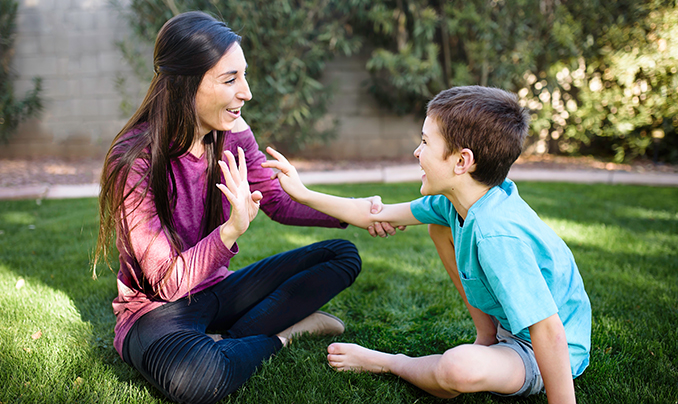
1. Learn From You!
As in anything with parenting, our kids’ behaviors and actions begin with us! We cannot expect our children to do something when we do the opposite. They learn far more from our actions than our words.
I was just listening to Brene Brown’s, The Gifts of Imperfect Parenting where she tells a story of her daughter calling herself an idiot for doing something wrong. She explained to her daughter that calling herself those names was unhelpful and led to shame. She then discussed other ways to work through that situation. But then while Brene was cooking spaghetti, she dropped the sauce spoon making a huge mess. As she picked up the spoon she said out loud, “I’m such an idiot. How could I be so stupid?” She then presents this question: What is a more powerful message? I’ll let you answer that one!
When it comes to teaching kids self-awareness skills, it’s important to model self-awareness yourself.
- Use everyday moments to show your children how you handle situations.
- When you are experiencing big emotions like anger or frustration, talk about those feelings and what you are planning on doing to overcome them.
- Give yourself a calm-down time when the big feelings become overwhelming. It’s not uncommon for me to tell my kids, “I am getting very upset right now, so I’m going to leave the room and come back when I’m calm.”
- Take time for yourself and let your kids see that you spend time processing life, praying or practicing mindfulness.
For You! Grab my Free Taking Care of MYSELF Ebook when you sign up for my newsletter here!
2. Learn How To Express Feelings
It has taken some time, but teaching my kids how to use “I” statements along with “Bug and a Wish” has been extremely helpful in developing their self-awareness skills.
“I” Statements
Help your children understand how the outside world and their external experiences affect their internal state. You do this by teaching them to use this statement:
“I feel _____(emotion)_____ when _____(the cause of the feeling)_____.”
For example, “I feel mad when you hit the back of my head.” By revealing the cause of the big feeling, your kids will have a better understanding of what they can do to make them feel better.
Bug and a Wish
This little trick comes from Jane Nelsen’s Positive Discipline. You teach your kids to say,
“It bugs me when _____(what the other person did)_____, I wish you would _____(the action you would like for that person to take)_____.”
For this phrase, we did need to create parameters such as no name-calling and that it needs to be genuine. When used correctly, it not only helps the other person understand what is going on, but it also gives the child saying the statement a deeper understanding of his or her own feelings.
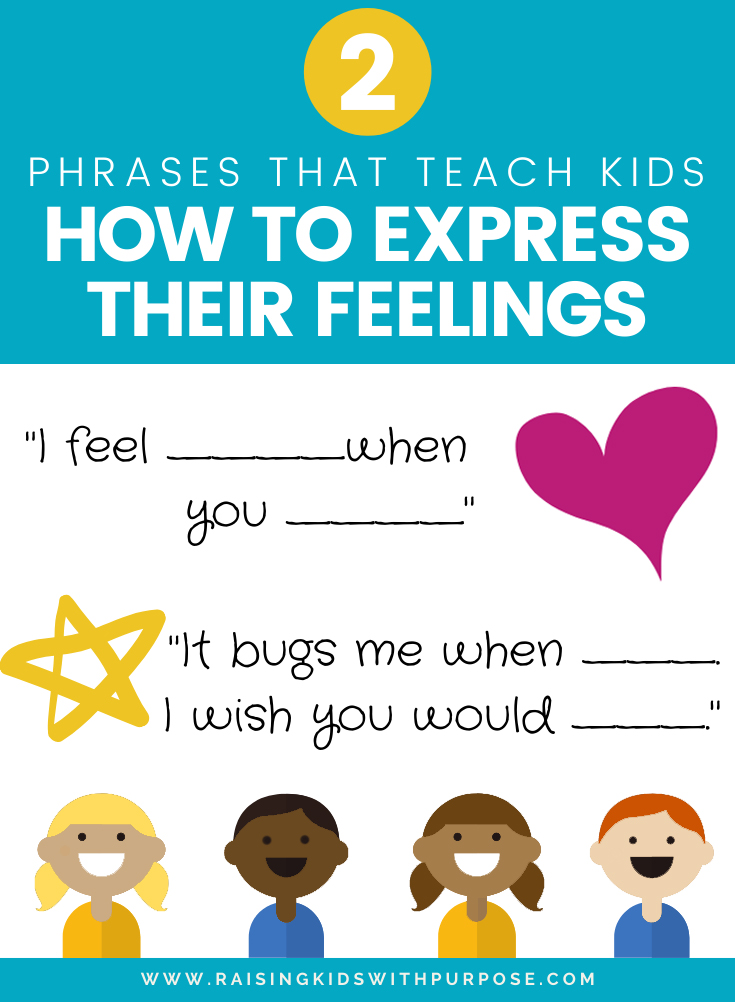
3. Become Effective Problem Solvers
Another way kids can learn self-awareness skills is by coming up with solutions to their own problems.
Oftentimes when kids face a predicament, they look to us to fix it and we often do. Instead of jumping in to rescue our kids especially because the emotions are too much to handle, let your child work it out. This doesn’t mean you leave your kids in the wilderness to forge food for themselves but rather give them the tools needed.
Big Life Journals has many GREAT resources that are broken down by ages and stages that help you teach problem-solving skills to your children.
Here are some simple tips that teach kids how to tackle their own problems and how to be aware of their feelings through the process:
- Help your kids learn how to pause before reacting (or over-reacting) to identify what the problem is.
- Ask your kids to show you the hard part. By breaking it down, your kids will be able to process why they can’t come to a solution. Then with your guidance, they will be able to solve it themselves.
- Use your child’s favorite characters by asking, “What would (insert characters such as Daniel Tiger or Harry Potter) do in this situation?”
- Teach your kids how to come up with a few solutions right away. If they really can’t think of anything, give them a few options.
- Become your child’s emotion coach by naming and validating their feelings, helping them process their emotions, and brainstorming solutions.
When kids can come up with their own solutions to problems, it allows them to be self-aware so they don’t have to rely on you.
4. Gain Estimation and Prediction Skills
This one is probably not something you typically think of when it comes to developing self-awareness skills in kids. However, it’s a great skill to learn especially with those who have executive functioning challenges.
Before doing something such as playing a game, doing homework, attending an event, performing in a sport or taking a test, have your kids predict how they will do.
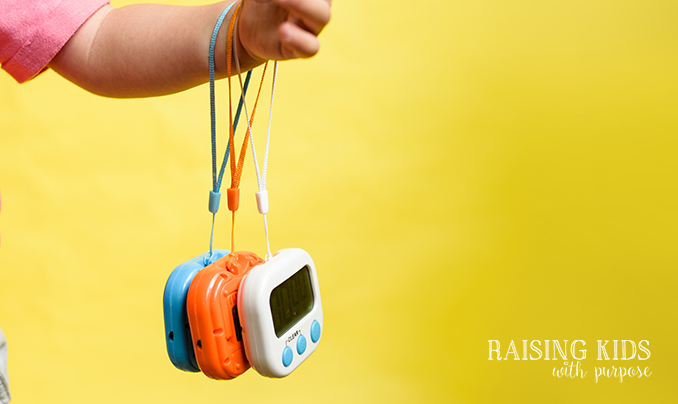
Slowly, they will get a better sense of time and not drive you crazy when you’re trying to get out the door while they decide to start a new project that takes an hour instead of two minutes.
You can start simply by estimating how easy or difficult a task is before starting it. Having your kids gauge their own abilities so that they can later self-reflect is a great way to help them develop self-awareness skills in all areas of their lives.
5. Become Empathic
In our house, we have found that one of our kids was born altruistic and empathy comes naturally to him. Whereas, another son has needed to be taught.
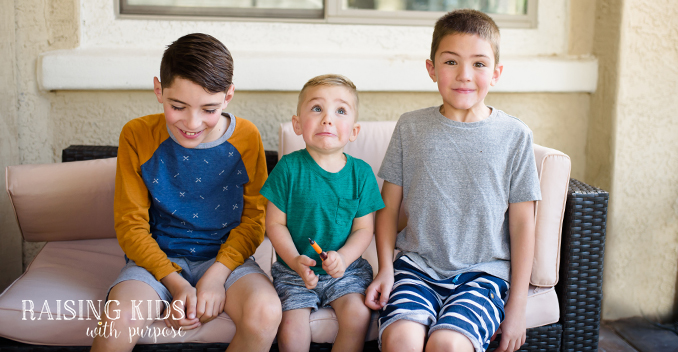
Typically when a child can understand him or herself, understanding others becomes easier. However, I think empathy can also teach self-awareness skills, especially for kids who struggle with looking inward. They can use how others feel and act to reveal their own emotions and behaviors.
Gratitude also goes hand in hand with empathy and self-awareness. I created a Gratitude Toolkit for Kids to help them develop these skills. You can download it here!
6. Doing Self-Reflection
Every night before bed, my son and I take less than five minutes to write in his One Question a Day for Kids Journal. Every day has a prompt to help him self-reflect about his day, interests, or experiences. It also gets him to think about who he wants to become (not just what he wants to become!). My other son works on his Big Life Journal weekly which focuses on self-reflection as well as a growth mindset.
Self-reflection is the act of setting aside time every day to look at yourself as a person and whatever roles you fill. For example, with my sons, their self-reflection time acknowledges their lives as brothers, students, friends, sons, and energetic boys!
Reflecting back on how the day went is a great way for kids to dig deeper into who they are and who they are becoming.
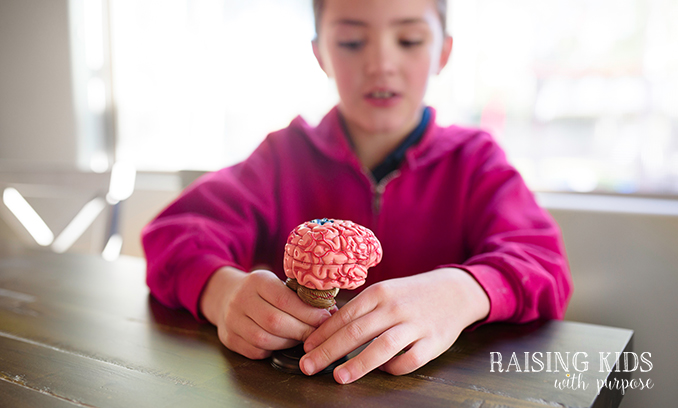
7. Understand Their Own Brain
I ended with this one because it’s MY FAVORITE!
Surprisingly, this is not a common tip that comes up when searching for ways to teach kids self-awareness skills. However, as I mentioned in the opening story, it has been life-changing for my son to understand himself and understand others.
I wonder what people out in public think when they hear him telling me that his three-year-old brother’s amygdala needs to calm down. Ha!
However, this has been a strategy to help him understand his brother’s underdeveloped brain and why he goes from happy to sad to angry to mean within one minute.
The Hand Model of The Brain
A great way to teach kids about their brains is by using the hand model which comes from Dr. Daniel Siegel’s books, Parenting From the Inside Out and The Whole-Brain Child.
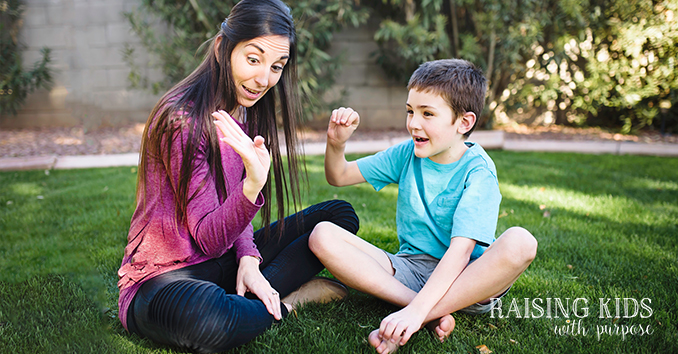
The thumb represents the amygdala which is the part of the brain that reacts when it perceives a threat, even if it’s only stress instead of actual danger. Explain there is no thought when this part of the brain is activated. It causes a person to react resulting in developing strong emotions such as anger, sadness or fear.
The fingers then represent the prefrontal cortex. It’s the “thinker” part of our brains. This is where organized thought, self-regulation, and focus are found.
When we are in a calm state, the brain is in a “fist” mode as the prefrontal cortex (the fingers) is gently resting on top of the amygdala (the thumb) allowing the person to think clearly.
As soon as the child perceives a threat that could be not getting his or her way, being told, “no”, getting hurt or even being unable to get a toy to work, the fingers open up causing the amygdala to be in charge. Dr. Dan Siegel calls this “flipping the lid”.
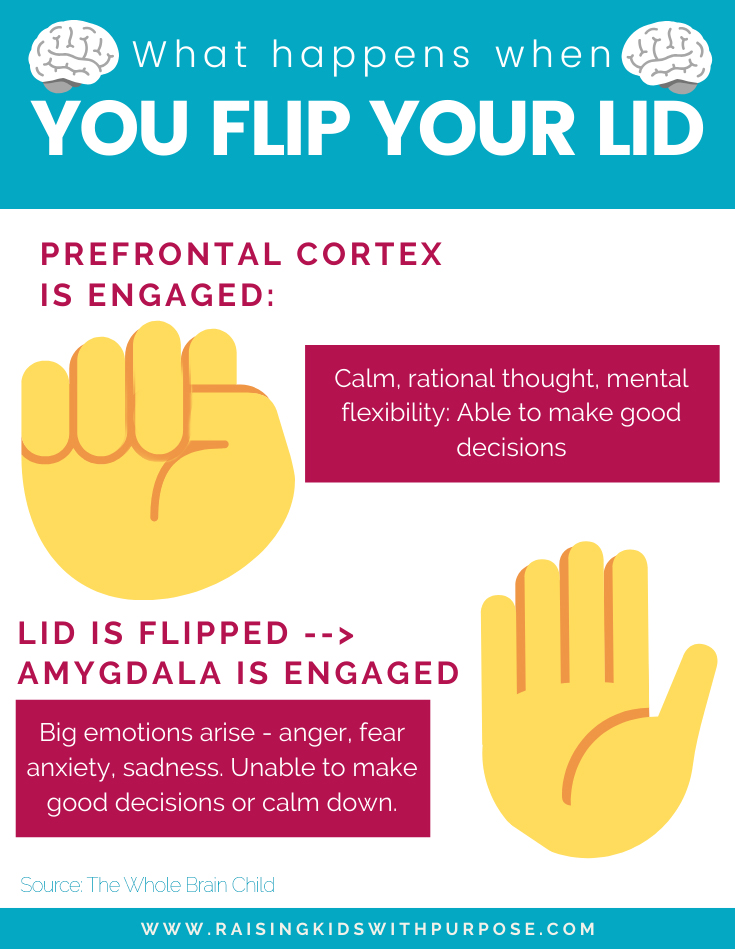
I explained to my son that when this happens, his stress response is triggered causing him to go into fight, flight, freeze, or faint mode. I then asked him which of those he thinks his go-to is and he immediately responded with, “FIGHT!”
Growth Mindset
One more layer of teaching kids about their brains is to talk about how they are wired for GROWTH! Discuss the growth mindset thinking versus fixed mindset to help expand their abilities and learning capabilities.
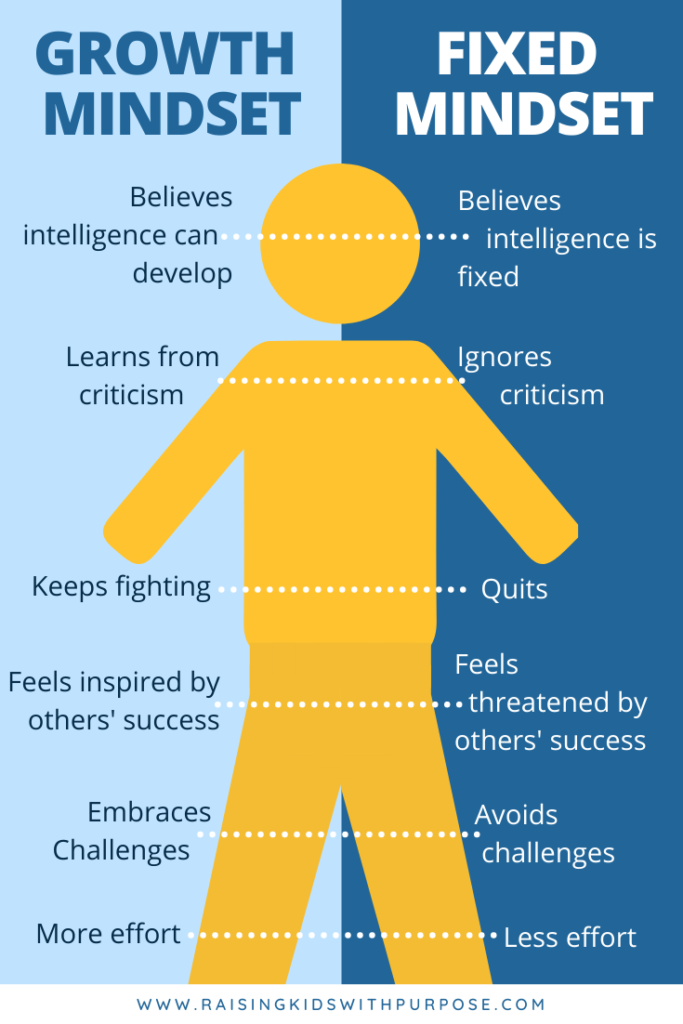
Self-Awareness Can Make a BIG Difference
Helping your children become self-aware can affect the way they live in this world. Self-awareness improves self-esteem, allows kids to become good problem solvers, helps them to recognize and correct mistakes, helps them become empathic, develops a growth mindset, and cultivates resiliency.
In conclusion, kids develop self-awareness skills by:
- Learning from you and other important adults in their lives.
- Learning how to express feelings.
- Becoming effective problem solvers.
- Gaining estimation and prediction skills.
- Becoming empathic towards others.
- Doing self-reflection every day.
- Understanding their own brain.
What Are Your Thoughts on Self-awareness?
I’d love to know how you teach self-awareness to your kids. Are they self-aware of their actions, thoughts, and feelings?
If you think this could benefit someone in your life, it would mean the world to me if you shared it…simply use the buttons below!


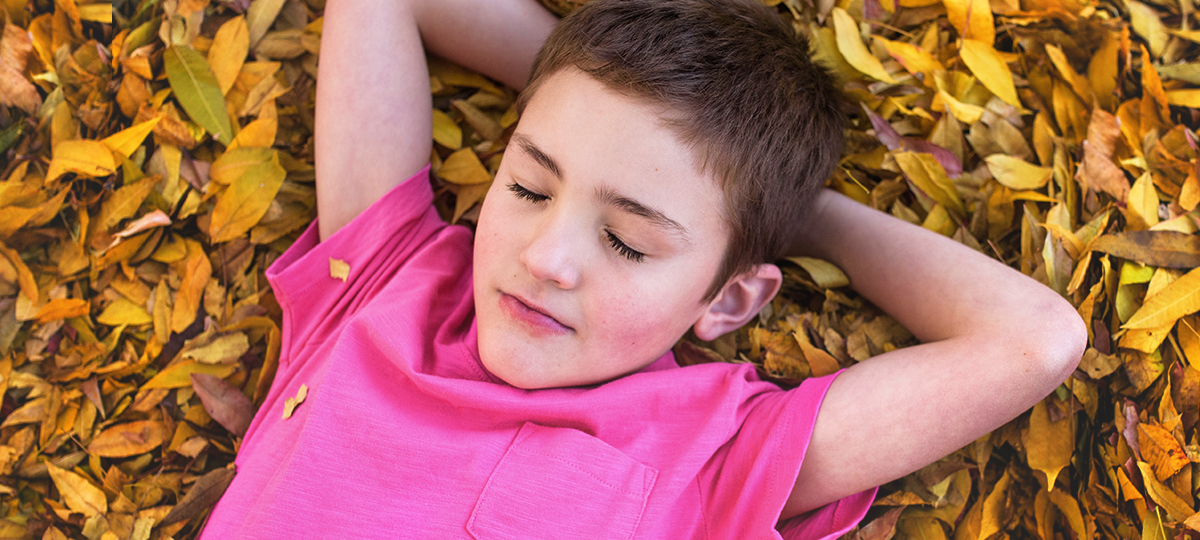
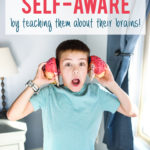
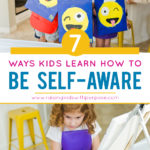
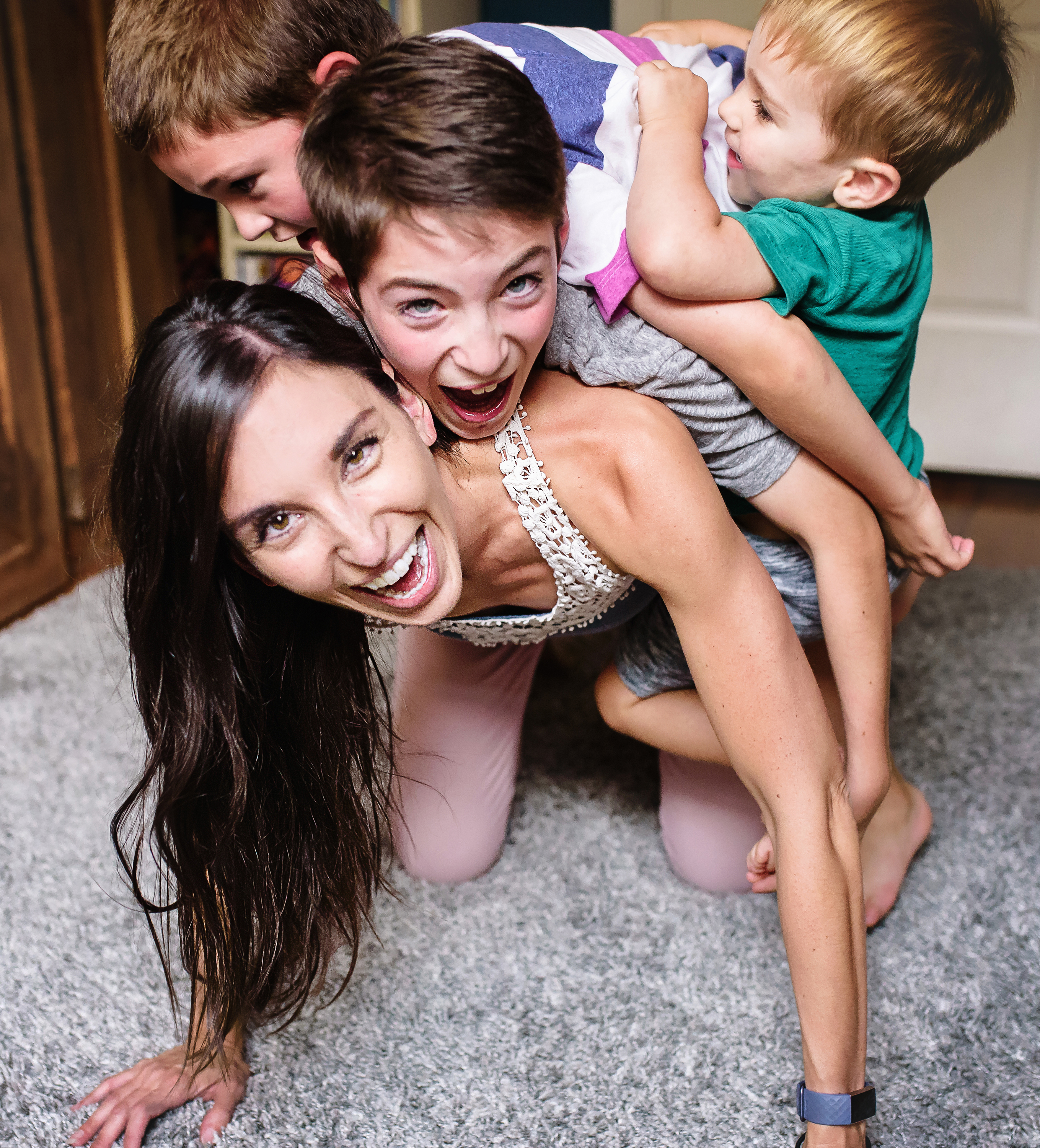
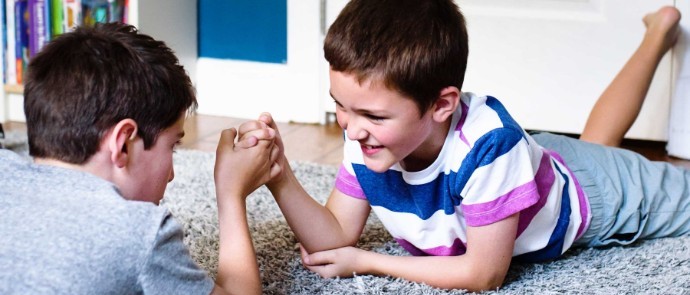
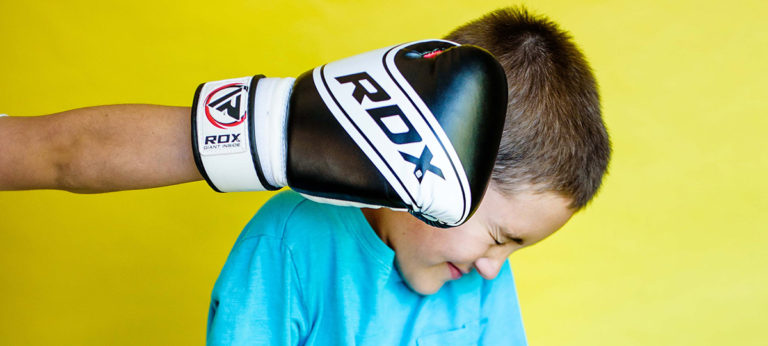
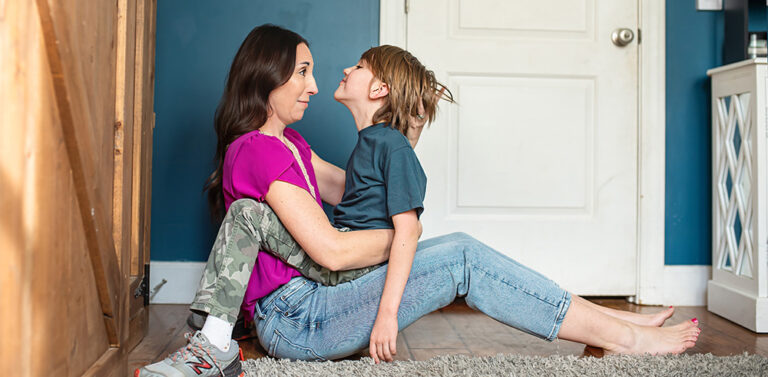
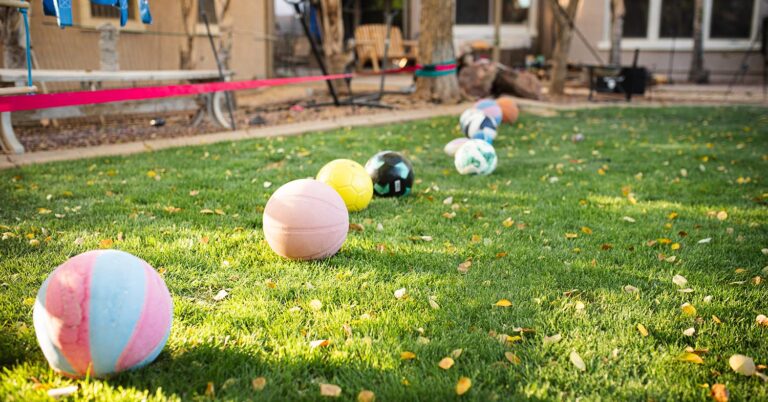
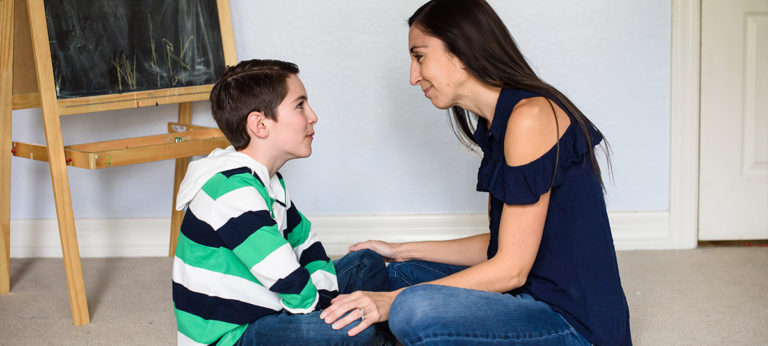
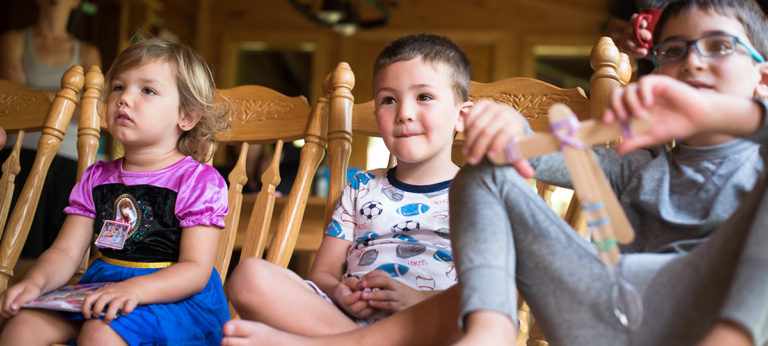
This is such a great read for parents looking for ways to develop better skills for his/her children. Thanks for sharing.
Thank you!!
Thanks!
These are very tangible tips! I will bookmark this for when my kid grows up
You can start when they’re super young too! My toddler is already developing self-awareness!
Thank you!
I love this post, thanks for sharing. I have 4 kids and I feel like I need to teach them more about their feelings and why they feel the way they do. I will definitely use some of your tips. Thanks.
You are welcome! Having a child understand their own feelings really helps them understand themselves and others!
These are all great ideas to allow kids to develop self-awareness skills. It’s so important to teach them young so that they know early on how important things like empathy are. Thanks for sharing!
Thank you! Starting young sure does help!
This is such an important lesson for children, especially as they grow up and start discovering their emotions on their own. It’s important for them to learn how to identify and control what they are feeling.
It is for all people, young and old!
Great list of tips. I agree the first one stating they learn from us. So true
That’s in everything, right?!
Your posts are always so helpful and this one is no exception. I’m going to send you a pm with a question I have for you that I think you might be able to help me with.
Yes, I’d love to!
I went to contact you on your contact page but I think your contact link is broken, Friend!
Thanks for letting me know!
this is essential, more people should be aware of this, it is important to build these skills and nurture the kids
Yes!
Great ideas. And a great article. Thanks for sharing.
Thanks!
I absolutely LOVE this article. Such great tips and tricks to teach children to become self-aware, but I think also I gain some clarity on the understanding of the concepts I am using in everyday life. Did not know Bug and Wish technique before, but I have a feeling it will be useful to know 🙂
Thanks for writing it up together and congratulations for being such an amazing parent and writer.
This is such a sweet comment! Thank you so much! Yes, we use, “bug and a wish” daily. LOL!
This is so helpful. I’m not yet to be a father and find it very good and looking to experience it on my kids in the future.
Thanks!
These are good points for kids and parents to consider. I never gave this much thought but it is great to keep these in mind.
Thanks!
I like how you and your son spend time to write down some self-reflection. Your kids are going to be amazing with your mom-tips ! This is a good way to “prepare” your kid for the adult life.
What a sweet comment! That’s the goal 😉 Thank you!
I just love this. It is very important for kids to build upon self-awareness. I try to build my daughter’s confidence everyday and i am always on the lookout for more.
Yes! Building on her confidence is a great way -and the best way to build her confidence is to make her feel competent!
These are great tips. I will share it with my sister so that she use for my niece. Thank you for sharing.
Thank you!
As a teacher of preschool students, self-awareness is very important for kids at an early age as they are trying to figure out their feelings. Practicing these tips mentioned above will help kids understand and know what to do about their feelings.
Oh I’m sure you see it all the time! Thank you!
Nicely articulated post. Learnt something new after reading your post.
Thank you!
Great article! I’ve really been trying to work on teaching my oldest daughter (she’s 11) to be more self aware, so this article came along at the perfect time. I’ll have to try these methods with her and see if it helps. Thank you!
I’m so happy to hear! Yes, let me know how it goes!
A beautiful way to raise kids with purpose. I love this list and teaching kids empathy young is so important.
Awe, thank you!
Oh man, this post is amazing. You have an excellent writing style and these tips are great. I’m trying so so hard to model good behavior for my kids. It’s awesome when I see their little mind click with something that I’m talking through, like I drop something on my toe and want to scream but I take a deep breath and talk out what I’m feeling instead, and then they’re all interested in my response and it becomes such a good lesson! Now just gotta get my hubby on board with that haha – we call him Happy Gilmore 😂
Awe, you’re so sweet, Cate! Thank you so much!! It is hard to model but it becomes easy as you practice. And I feel ya on the husband jumping on the train. LOL! It’s taken years but with a lot of modeling for him (and not telling), he’s connecting more and more aware of his actions around the kids. Although some of the ideas he has that I wouldn’t typically share with the kids, I guess can also be seen as character building 😉
As a mommy of a 9mo old I can’t wait to instill these in him.
It won’t be long!
I love this. I have been trying this with my boys and they have started to tell me there emotions and they are only 3 and 4. I now have a few more tips to try with them. Thank you so much for a wonderful post.
Yes! It’s sooo good to start that early! I love hearing stories like this!
I’m really good at letting my kids make mistakes and learn to problem-solve. They hate it and always tell me I’m a horrible parent because I never “do anything” when they’re working something out. Truth be told, sometimes I’m too exhausted to deal with every single fight, argument, and small issue they encounter. So, I do sit back and let them figure out on their own. Even though I’m just too tired to deal with it, I’m teaching them to solve their own problems.
You definitely are! Remember though, that they may need some skills to fight right. LOL! I’m all about my kids working things out as well while giving them little tips on how to work through problems. If I left it up to them, there would be blood every time 😆
I love this post. I have 2 kid it will be useful for me. Thank you for sharing
Let me know how it goes!
What a great post! I think it’s beneficial for every parent. I loved how you explained each point very clearly. Thanks for sharing these wonderful tips.
Thank you!
This is a super informative read!! I’ve been trying to help my kids with this recently but was a little lost with how to do so. Thanks for posting!
Oh really! I’m so happy to hear!
This is amazing, thank you so much for sharing. Pinning for later. My daughter is 2, but this is exactly the kind of questions and phrasing I want to instill in her NOW so it becomes second nature as she gets older!
YES! I hear people often say that they’ll keep this stuff in mind for when they’re kids are older but honestly, start when they’re 1, 2 and 3!!! That’s when the most development happens in their little brains!
I have a 4 yrs old niece and she is so good at observing and learning from family members and her teachers. We are required to be self aware if she’s near by, not to let her learn something she’s not supposed to.
That’s SUCH A great point! While teaching self-awareness, we need to practice self-awareness! Nailed it!!
Great blog post. I love that you used examples. Will use them on my son.
Let me know how it goes!
I love these tips. They are also great for kids and adults alike. Thanks for sharing!
You’re welcome!
This is such an important read, and so important to help children become better for their future.
Thank you! It really will help their future!
This is such a great article. It’s very important for kids to learn these skills and they will be better people because of it. I like your ideas, thank you for sharing
Thank you!
This is fantastic information! If every kid get this type of education, our world will have less conflicts and become a better place to live 🙂
Couldn’t agree more!
This is a really good read. I can think of some adults who could use these tips as well. Thanks for helping create well adjusted humans, kids and future adults.
That’s my goal 😉 Thank you!!!
As I was reading your blog, it reminded me of the book, The Whole Brain Child, what a delight to see it as resource. I’m saving this article for later, as a professional Nanny it’s a good reminder how to teach our kids to be self aware.
So funny because in the post I’m publishing today, I talk about how I think reading the Whole Brain Child should be a requirement before leaving the hospital with a newborn! It’s so good! Thank you for your sweet comment!
This is awesome. I’m definitely going to start teaching my daughter these expressive statements. I think it’s very important to learn how to express your feeling at a young age. Thanks for sharing.
That will be a skill that will last her a lifetime!